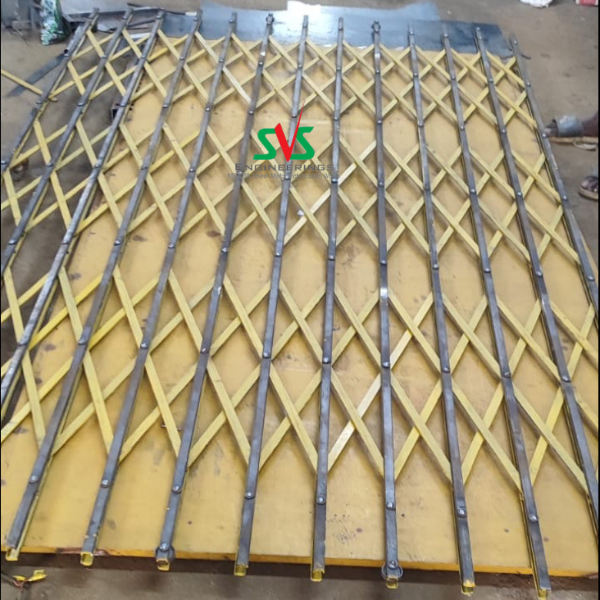Collapsible Gate
Making Cool Collapsible Gate
At SVS Engineerings, we are proud to make excellent collapsible gate that keep you safe, save space, and look nice. These gates are great for houses, shops, and factories because they protect you without blocking air and light.
Contact SVS Engineerings
Looking for reliable COLLAPSIBLE GATE MANUFACTURE in Chennai? Connect with SVS Engineerings today! Let us help you find the perfect COLLAPSIBLE GATE tailored to your needs.
CALL NOW
Why Choose Our Collapsible Gate?
Super Strong and Easy to Use
Our gates are made with powerful steel and iron, which last a long time and keep people out.
They fold smoothly, making them easy to open and close, perfect for keeping your place safe
Let Air and Light In
Unlike solid walls, our gates let fresh air and sunlight through, so you don’t feel trapped while staying safe.
They improve safety and comfort in a home, office, or warehouse.
Custom Built for Your Unique Needs
We know every place is different. That’s why SVS Engineerings offers many ways to customize your gate – like size, design, colour, and locks. Our gates fit perfectly with your space while working great.
A Choice That’s More Than Just Safety
Picture a home that feels safe but open, a secure but friendly office, or a storefront that stays protected but easy to see.
A horrible security gate can make places feel cramped, but our gates provide safety and comfort.
With a smooth design, you control your space while keeping bad guys out.


Contact SVS Engineerings
Looking for reliable COLLAPSIBLE GATE MANUFACTURE in Chennai? Connect with SVS Engineerings today! Let us help you find the perfect COLLAPSIBLE GATE tailored to your needs.
CALL NOW
Real World Applications
As a TOP GATE MAKER, we are known for
Outstanding Craftsmanship – Built to last and work well.
Special Solutions – Made to fit your space and needs.
Great Customer Support – We help you from picking to putting up your gate.
Good Prices – Quality gates at affordable costs.
Where Can You Use Our Collapsible Gates?
Homes & Apartments – Keep balconies, main doors, and hallways safe.
Shops & Showrooms – Protect storefronts without losing sight.
Factories & Warehouses – Make security stronger in significant buildings.
Parking Areas – Keep people out while making it easy to open.

Collapsible Grill is not just about security it is an intelligent investment into any commercial establishment. This is because of its strength, durability, and convenience—all the reasons behind its acceptance by business proprietors as the first choice in this direction.
With SVS ENGINEERINGS, one is just not buying the product, but is going to be investing in reassurance with confidence and savor it the SVS way.
Keep Your Freedom Safe with SVS Engineerings
When safety, space, and looks are essential, SVS Engineerings gates are the best choice. Contact us today for a free chat and custom quote.
Contact SVS Engineerings
Looking for reliable COLLAPSIBLE GATE MANUFACTURE in Chennai? Connect with SVS Engineerings today! Let us help you find the perfect COLLAPSIBLE GATE tailored to your needs.
CALL NOW
